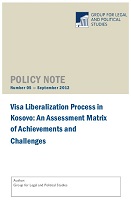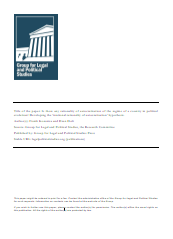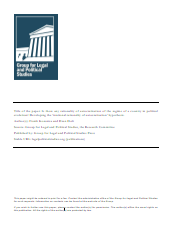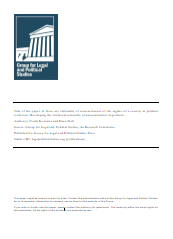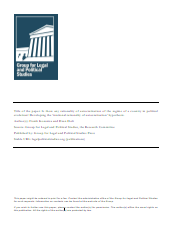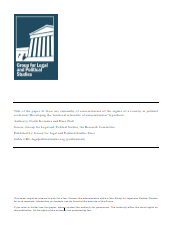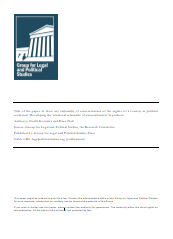Is there any prevalence or conflict between models of legitimation? Developing the »optimum balance between models of legitimation« hypothesis.
Author(s): Fisnik Korenica,Dren Doli / Language(s): English
Keywords: Legitimacy; Models of legitimacy; Synchrony between forms of legitimacy; Conflict between forms of legitimacy; Optimum balance between models; Internal legitimacy; International legitimacy; Input/Output legitimation
This paper is aimed at explaining the potential prevalence or conflict that might exist between different forms of legitimacy, in addition to a search for a balance or exclusion of a form of legitimacy for the sake of another. Initially the paper will survey and discus the concept of legitimacy, given its philosophical and sociological but also political meaning. Following that, the paper will then set a range of models of legitimacy that the literature proclaims to exist. In addition to that, we will then endeavor to classify the forms of legitimacy into groups. Accordingly, we will then assess whether there is a potential conflict between one form of legitimacy against another, in addition to the potential prevalence of a form of legitimacy towards another. In the end, we will argue that, there are two basic groups of internal legitimating instruments, first, the input-oriented ones and the output oriented ones, in addition to the international legitimacy. Being based in the latter, we will argue that, in order for the democracy to have a dynamic development, there is a need to find compromise in between models of legitimation, therefore we produce a synchronizing logic for the latter. We will then produce our own hypothesis which says that, the balance between models of legitimation is the best possible consensus that might follow a polity and a political system, while the result would be a modern legitimacy.
More...


